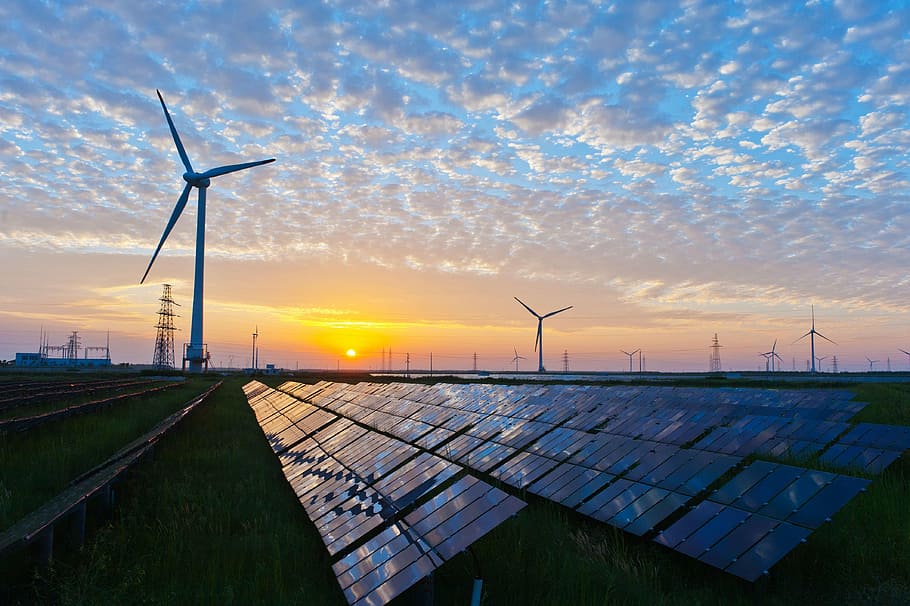When will Fossil Fuels expire – and how Renewables will replace them
The Earth has finite amounts of fossil fuels. At current rates of consumption, estimates suggest oil and natural gas could run out in about 50 years, with coal having perhaps 70-100 years remaining.
To be more precise:
- Oil: Estimates vary, but many sources put known oil reserves at lasting roughly 47-56 years, assuming consumption stays more or less as it is now.
- Natural Gas: Similar figures for gas, largely in the 50-year range.
- Coal: Because proven reserves are larger and coal extraction is less constrained (though not without environmental and political difficulties), coal might last 70-100 years under current demand patterns.
Of course, these “running out” dates are not exact deadlines. They assume no major new discoveries, no radical improvements in extraction, no unexpected leaps in efficiency, and no drop in demand. Real-world factors could push the figures back or forward by a decade or more.
How renewables are becoming the cheaper option
While fossil fuels are finite and their extraction is becoming harder (and more expensive), renewable energy, especially solar and wind, is rapidly becoming more cost-competitive. The latest data and policy analysis show several clear trends:
- Most new renewable projects are already cheaper than fossil alternatives: according to the International Renewable Energy Agency (IRENA), over 90% of newly commissioned renewable projects globally are now cheaper to run than new coal or gas plants. Solar PV is around 41% cheaper than the cheapest fossil fuel sources in many cases; onshore wind is also well below fossil fuel costs.
- Renewables costs are falling steadily: solar module prices, turbine efficiencies, and wind farm technologies continue to improve. In the UK, for instance, new offshore wind projects under the Government’s Contracts for Difference (CfD) auctions have delivered electricity at prices (£/MWh) much lower than older wind farms and certainly below many projected gas and nuclear generation costs.
- System-wide economic benefits: studies suggest that electricity systems dominated by renewables – when paired with appropriate storage, grid reinforcement, demand management – are likely to cost less overall than those heavily reliant on fossil gas. In other words, the total cost of generating, transmitting, balancing intermittent supply, and managing price volatility tends to favour renewables as scale increases.
- Policy, investment and climate goals are pushing change: with international pressure (e.g. Paris Agreement), national net-zero commitments, and increasing awareness of climate risks, governments are more willing to invest in clean energy infrastructure. At the same time, private investment is flowing: more money is being invested into renewables than into fossil fuels in recent years. António Guterres (in the Guardian) and others have described this as a “climate breakthrough” moment.
What This Means
If these trends continue:
- We may reach a point well before the literal “run-out” dates where fossil fuels are no longer economically viable because renewables are cheaper, cleaner, and increasingly reliable.
- Demand for oil and gas may decline significantly sooner than full depletion, especially for power generation, heating, and transport (with electric vehicles).
- Coal is likely to be phased out long before its theoretical reserves run out, at least in many developed nations, because of environmental regulation, carbon pricing, and social opposition.
In short, while oil, gas and coal are not about to disappear overnight, their era of dominance is nearing its sunset. The economics are shifting: renewables are not just an ideal for the future, but often the best deal already.
Sources:
bkvenergy.com/learning-center/running-out-of-fossil-fuels/
www.worldometers.info/oil/
www.fairplanet.org/story/when-will-we-run-out-of-fossil-fuels/
www.euronews.com/green/2025/07/22/more-than-90-of-new-renewable-energy-projects-are-now-cheaper-than-fossil-fuels-study-show
www.imperial.ac.uk/grantham/publications/background-briefings/how-cost-effective-is-a-renewables-dominated-electricity-system-in-comparison-to-one-based-on-fossil-fuels/
www.theguardian.com/environment/2025/jul/22/antonio-guterres-climate-breakthrough-clean-energy-fossil-fuels








